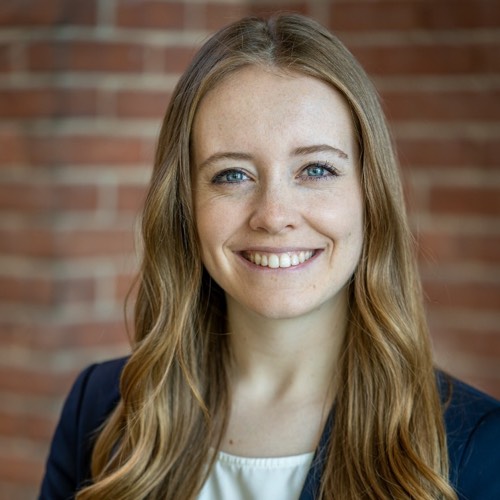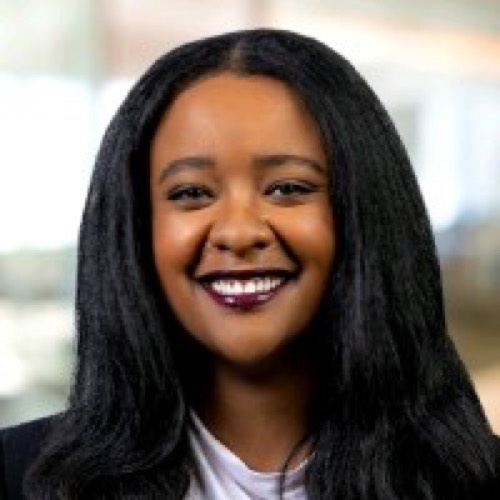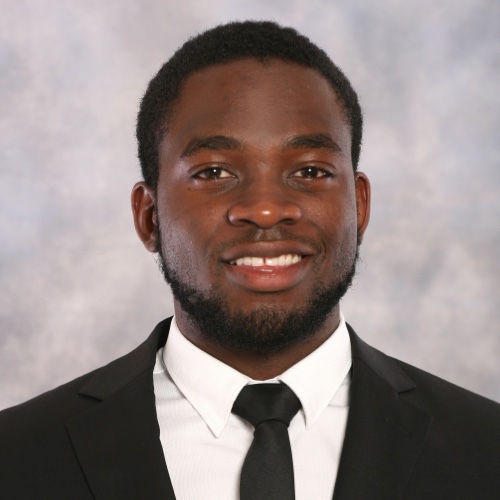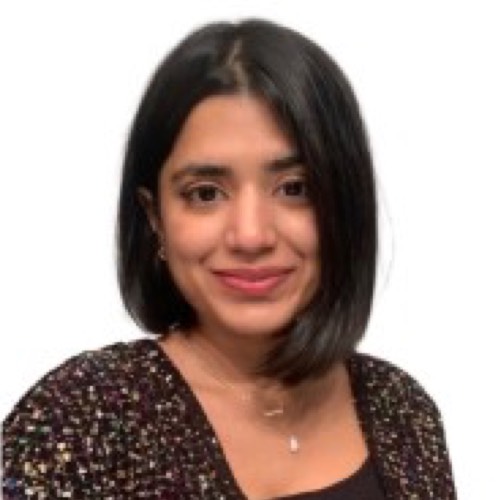
Alexandre Lemaire, MIB’23
“Business is changing so quickly. We could all use global exposure to get out of our comfort zone to do things differently.”
- Undergrad: Bachelor of Business Administration and Management, Université de Sherbrooke
- MIB program: Double degree with Esade (Barcelona, Spain)
- Your MIB experience, in a word: “Fulfilling”
Read Alexandre’s story

Trish Peters, MIB’23
“International experience can be used anywhere. In my experience, employers really value it, because it shows that you’re willing to continue learning on the job.”
- Undergrad: Bachelor of Commerce (Finance), Ontario Tech University
- MIB program: Double degree with Maastricht School of Business and Economics (Maastricht, The Netherlands)
- Your MIB experience, in a word: “Unforgettable”
Read Trish’s story

Nour Alard, MIB’22
“I understood pretty quickly that there’s not just one way of doing things.”
- Undergrad: Bachelor of Management and Organizational Studies, Western University, Canada
- MIB program: Double degree with ESSEC Business School, France
- Exchange option: Four months at Bocconi University in Milan
- Your MIB experience, in a word: “Unique”
Read Nour’s story

Ami Trivedi, MIB’21
“The program was so eye-opening. I pushed myself academically. I got to experience a new culture and way of life. And I met people who became friends for life.”
- Undergrad: Bachelor of Arts (Political Science), Queen’s University
- MIB program: Double degree with the University of Mannheim (Mannheim, Germany)
- Your MIB experience, in a word: “Community”
Read Ami’s story

Donata Bauer, MIB’21
“Being exposed to international experiences from an academic point of view only sets you up for success in a globalized economy.”
- Undergrad: Bachelor of Business Administration, University of St. Gallen
- MIB program: Single degree
- Exchange option: Semester at Bocconi University in Milan, Italy
- Your MIB experience, in a word: “Confidence”
Read Donata’s story

Mackenzie Arnold, MIB’20
“I created experiences for myself that were very different than what I’d do otherwise.”
- Undergrad: Bachelor of Management (minor in International Development), Dalhousie University, Canada
- MIB program: Double degree with WU Vienna University of Business & Economics, Austria
- Your MIB experience, in a word: “Introspective”
Read Mackenzie’s story

Simera Negeri, MIB’19
“When you arrive somewhere with no family or friends or networks, you get really close, really fast.”
- Undergrad: Bachelor of International Business, Sprott School of Business, Carleton University, Canada
- MIB program: Double degree with University of Queensland, Australia
- Your MIB experience, in a word: “Diverse”
Read Simera’s story

Chris Mbangala, MIB’18
“I thought to myself: I am seeing the world in a different way. This is the context in which I want to evolve.”
- Undergrad: Bachelor of International Business, Maastricht School of Business & Economics, Netherlands
- MIB program: Double degree with Maastricht School of Business & Economics
- Your MIB experience, in a word: “Game-changing”
Read Chris’s story

Amina Saigol, MIB’16
“I realized I could make my MIB experience what I really wanted it to be.”
- Undergrad: Bachelor of Arts & International Relations, Brown University, USA
- MIB program: Single degree
- Exchange option: Three-week Innovation Management program at WU Vienna University of Business & Economics, Austria
- Your MIB experience, in a word: “Purposeful”
Read Amina’s story








